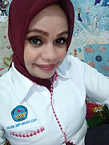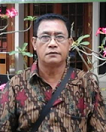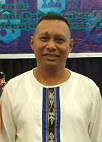Empowering students’ critical thinking skills, information literacy and cognitive learning outcome through RBL-TPS model
DOI:
https://doi.org/10.22219/jpbi.v6i2.11456Keywords:
cognitive learning outcome, critical thinking skills, information literacy, RBL-TPSAbstract
The use of proper learning model by teachers’ in a class room is crucial to be done in addressing the better learning quality. This study aimed at improving learning quality by choosing the most optimum learning model. This research was a quasi-experimental study using nonequivalent pretest-posttest control group design. This study was conducted in Senior High School 9 and Senior High School 5 of Ambon in academic year 2018/2019.The total sample used in this research was 127 students. The Critical Thingking Skills (CTS) and Cognitive Learning Outcome (CLO) tests as well as information literacy observation sheets were used as the instruments to gain the data. The data obtained in terms of students’ CTS, CLO ang information literacy were analyzed using inferential statistics (ANCOVA and LSD tests). The results showed that there were significant differences among X graders’ CTS, CLO, and information literacy [F(1,124) = 64.380, F(1,124) = 68.238 F(1,124) = 26.078 , p < 0.05] respectively, who were taught using RBL-TPS learning model in biodiversity material. In the other words, the RBL-TPS learning model is able to empower students’ CTS, CLO, and information literacy compared to the common learning model used by biology teachers. Thus, the used of RBL-TPS is recommended to be implemented in the other biology learning materials.Downloads
References
Adekunle, A. P., Olla, G. O. O., Olajide, A. A., Osuji, C. N., & Adedoyin, A. O. (2019). Attitude of undergraduate students to information literacy: Bowen university experience. Journal of Balkan Libraries Union, 6(1), 1–11. Retrieved from http://balkanlibraries.org/frontend/Journal/pdf/Article1_Attitude of Undergraduate Students to Information Literacy Bowen University Experience_2.pdf
Ahmed, O., & Khanam, M. (2014). Learning resources management strategies and academic achievement of secondary school students. The International Journal of Indian Psychology, 2(1), 108–119. doi: https://doi.org/10.25215/0201.014
Amin, A. M., Corebima, A. D., & Zubaidah, S. (2017). The critical thinking skills profile of preservice biology teachers in animal physiology. Proceedings of the 3rd International Conference on Education and Training, 128(179–183). doi: https://doi.org/10.2991/icet-17.2017.30
Apriani, E. (2016). Using the think-pair-share (TPS) strategy to enhance students’ reading achievement of the seventh grade at MTSN Lumpatan. Jurnal Pendidikan Islam, 1(2), 189–204. doi: https://doi.org/10.29240/bjpi.v1i2.110
Awaluddin. (2019). Resource-based learning for teaching Arabic. Journal of Arabic Learning, 2(1), 77–91. doi: https://doi.org/10.18860/ijazarabi.v2i1.6612
Azid, N., Hasan, R., Nazarudin, N. F. M., & Md-Ali, R. (2020). Embracing industrial revolution 4.0: The effect of using web 2.0 tools on primary schools students’ mathematics achievement (fraction). International Journal of Instruction, 13(3), 711–728. doi: https://doi.org/10.29333/iji.2020.13348a
Bahtiar. (2013). Potensi pembelajaran yang memadukan strategi think pairs share (TPS) dan reading questioning answering (RQA) untuk meningkatkan sikap sosial dan penguasaan konsep biologi siswa SMA multietnis di Ternate. Prosiding Seminar Nasional Biologi, 10(2), 1–7. Retrieved from doi: https://jurnal.fkip.uns.ac.id/index.php/prosbio/article/view/3132
Bamiro, A. O. (2015). Effects of guided discovery and think-pair-share strategies on secondary school students’ achievement in chemistry. Sage Open, 1–7. doi: https://doi.org/10.1177/2158244014564754
Becker, S. O., Hornung, E., & Woessmann, L. (2009). Catch me if you can: Education and catch-up in the industrial revolution. IZA Discussion Paper No. 4556. Forschungsinstitut Zur Zukunft Der Arbeit Institute for the Study of Labor, 5(Oktober), 1–59. Retrieved from https://www.cesifo.org/DocDL/cesifo1_wp2816.pdf
Benešová, A., & Tupa, J. (2017). Requirements for education and qualification of people in industry 4.0. Procedia Manufacturing, 11, 2195–2202. doi: https://doi.org/10.1016/j.promfg.2017.07.366
Birgili, B. (2015). Creative and critical thinking skills in problem-based learning environment. Journal of Gifted Education and Creativity, 2(2), 71–80. doi: https://doi.org/10.18200/JGEDC.2015214253
Boleng, D. T. (2015). Pengaruh penggunaan model pembelajaran think-pair-share terhadap Keterampilan berpikir kritis, hasil belajar kognitif bakteriologi mahasiswa program studi pendidikan biologi FKIP universitas mulawarman. In Seminar Nasional XII Pendidikan Biologi FKIP UNS (pp. 572–579). Retrieved from http://repository.unmul.ac.id/handle/123456789/4254
Catts, R. (2012). Indicators of adult information literacy. Journal of Information Literacy, 6(2), 4–18. doi: https://doi.org/10.11645/6.2.1746
Catts, R., & Lau, J. (2008). Towards information literacy indicators. Paris: UNESCO. Retrieved from doi: https://dspace.stir.ac.uk/bitstream/1893/2119/1/cattsandlau.pdf
Facione, P. A. (2011). Critical thinking: What it is and why it counts. Insight assessment. Insight assessment. Retrieved from https://www.kritischdenkenhbo.nl/files/uploads/2019/1566550466789-what & why critical thinking, update 2015.pdf
Febriani, R., Suratno, & Fikri, K. (2015). Pengaruh model pembelajaran resource based learning (RBL) dikombinasikan dengan snowball throwing terhadap metakognisi dan hasil belajar biologi. Jurnal Edukasi, 2(2), 26–32. doi: https://doi.org/10.19184/jukasi.v2i2.3507
Flores, K. L., Matkin, G. S., Burbach, M. E., Quinn, C. E., & Harding, H. (2012). Deficient critical thinking skills among collage graduates: Implication for leadership. Educational Philosophy and Theory, 44(2), 212–229. doi: https://doi.org/10.1111/j.1469-5812.2010.00672.x
Ghozali, I. (2018). Educational challenges to the 4.0 industrial revolution: Experience from Indonesia. The International Academin Seminar, 1–7. Retrieved from doi: http://ustjogja.ac.id/journal/download/4th_Industrial_Revolution.pdf
Hamdan, R. K. A. (2017). The Effect of (think-pair-share) strategy on the achievement of third grade student in sciences in the educational district of Irbid. Journal of Education and Practice, 8(9), 88–95. Retrieved from https://eric.ed.gov/?id=EJ1139082
Hetika, H., Farida, I., & Sari, Y. P. (2017). Think Pair Share (TPS) as Mmethod to improve student’s learning motivation and learning achievement. Dinamika Pendidikan, 12(2), 125–135. doi: https://doi.org/10.15294/dp.v12i2.13561
Hill, J. R., & Hannafin, M. J. (2001). Teaching and learning in digital environments: The resurgence of resource-based learning. Education Technology Research Development, 49(3), 37–52. doi: https://doi.org/10.1007/BF02504914
Jatmiko, A., Kartina, Y., Irwandani, Fakhri, J., Pricilia, A., & Rahayu, T. (2018). Reading concept map-think pair share (remap-TPS) learning model on cognitive ability and scientific attitude. Tadris: Jurnal Keguruan Dan Ilmu Tarbiyah, 3(2), 183–195. doi: https://doi.org/10.24042/tadris.v3i2.3184
Kabataş Memiş, E., & Çakan Akkaş, B. N. (2020). Developing critical thinking skills in the thinking-discussion-writing cycle: the argumentation-based inquiry approach. Asia Pacific Education Review, 21(3), 441–453. doi: https://doi.org/10.1007/s12564-020-09635-z
Kaddoura, M. (2013). Think pair share: A teaching learning strategy to enhance students’ critical thinking. Educational Research Quarterly, 36(4), 3–24. Retrieved from https://eric.ed.gov/?id=EJ1061947
Kayembe, C., & Nel, D. (2019). Challenges and opportunities for education in the fourth industrial revolution. African Journal of Public Affairs, 11(3), 79–94. Retrieved from https://journals.co.za/content/journal/10520/EJC-19605d342e
Khaeriyah, E., Warsiti, & Kartika, C. S. (2015). Penerapan model resource based learning (RBL) dengan pendekatan scientific dalam peningkatan pembelajaran IPA di kelas IV SDN 1 Klapasawit tahun ajaran 2014/2015. Alam Cendekia, 3(5), 551–555. Retrieved from https://www.google.com/url?sa=t&rct=j&q=&esrc=s&source=web&cd=&ved=2ahUKEwjb0-Ttvr_rAhWSbysKHbDtC8AQFjABegQIBRAB&url=https%3A%2F%2Fdigilib.uns.ac.id%2Fdokumen%2Fdownload%2F48745%2FMTkxMTQy%2FPenerapan-model-resource-based-learning-rbl-dengan-pendekatan-sc
Khan, M. L., & Idris, I. K. (2019). Recognise misinformation and verify before sharing: a reasoned action and information literacy perspective. Behaviour and Information Technology, 38(12), 1194–1212. doi: https://doi.org/10.1080/0144929X.2019.1578828
Kuhlthau, C. C. (1987). Information skills for an information society: A review of research. Retrieved from https://eric.ed.gov/?id=ED297740
Lasi, H., Fettke, P., Kemper, H. G., Feld, T., & Hoffmann, M. (2014). Industry 4.0. Business & Information Systems Engineering, 6, 239–242. doi: https://doi.org/10.1007/s12599-014-0334-4
Laverty, C. C. (2000). Resource-based learning: Gateway to information literacy. Retrieved from https://www.researchgate.net/publication/309763067_Resource-Based_Learning_Gateway_to_Information_Literacy
Mahardini, T., Khaerunisa, F., Wijayanti, I. W., & Salimi, M. (2018). Research based learning (RBL) to improve critical thinking skills. SHEs: Conference Series, 1(2), 466–473. doi: https://doi.org/10.20961/shes.v1i2.26816
Mariyam, & Nuraida, D. (2017). Pengaruh model pembelajaran brain based learning dipadukan dengan mind mapping terhadap penguasaan konsep siswa. Proceeding Biology Education Conference, 4(1), 494–497. Retrieved from https://jurnal.uns.ac.id/prosbi/article/view/18482
Martin, J. (2013). Refreshing information literacy learning from recent british information literacy models. Communications in Information Literacy, 7(2), 114–127. doi: https://doi.org/10.15760/comminfolit.2013.7.2.142
McLaughlin, A. C., & McGill, A. E. (2017). Explicitly teaching critical thinking skills in a history course. Science & Education, 26(1–2), 93–105. doi: https://doi.org/10.1007/s11191-017-9878-2
Melendres, G. O. (2015). Resource-based learning (RBL) strategy to improve information literacy in general science of freshmen secondary students. In Proceeding of the 3rd Global Summit on Education GSE (pp. 290–297). Retrieved from https://worldconferences.net/proceedings/gse2015/paper gse15/G 105 RESOURCE-BASED LEARNING (RBL) STRATEGY TO IMPROVE INFORMATION LITERACY IN GENERAL SCIENCE OF FRESHMEN SECONDARY STUDENTS - GENEVAIVE.pdf
Noguez, J., & Neri, L. (2019). Research-based learning: a case study for engineering students. International Journal on Interactive Design and Manufacturing (IJIDeM), 13(4), 1283–1295. doi: https://doi.org/10.1007/s12008-019-00570-x
Nugraha, M. (2018). Penerapan model pembelajaran resource based learning (RBL) dalam upaya meningkatkan kemampuan penguasaan konsep IPA. Mendidik: Jurnal Kajian Pendidikan Dan Pengajaran, 4(1), 71–76. doi: https://doi.org/10.30653/003.201841.45
Ogunyebi, & Henry, T. (2018). Enhancing science performance through think-pair strategies among college of education students in integrated science in Ekiti State, Nigeria. International Journal of Education and Evaluation, 4(4), 55–66. Retrieved from https://iiardpub.org/get/IJEE/VOL. 4 NO. 4 2018/ENHANCING SCIENCE.pdf
Qoyyum, I. M., Jazim, & Linugung, N. (2017). Pengaruh pendekatan resource based learning dikombinasikan scramble terhadap hasil belajar siswa. In Prosiding Seminar Nasional Pendidikan (pp. 66–72). Palembang. Retrieved from https://www.google.com/url?sa=t&rct=j&q=&esrc=s&source=web&cd=&cad=rja&uact=8&ved=2ahUKEwjBnaqdv7_rAhUXfisKHa1EDWwQFjAAegQIBBAB&url=https%3A%2F%2Frepository.ummetro.ac.id%2Ffiles%2Fsemnasdik%2Fc31b4519734809340afe5e2097de0365.pdf&usg=AOvVaw2tBgQyOaMIWFgJ6
Rahayu, S., & Suningsih, A. (2018). The effects of type learning model numbered head together and think pair share. International Journal of Trends in Mathematics Education Research, 1(1), 19. doi: https://doi.org/10.33122/ijtmer.v1i1.27
Rofieq, A., Latifa, R., Susetyarini, E., & Purwatiningsih. (2019). Project-based learning: Improving students’ activity and comprehension through lesson study in senior high school. Jurnal Pendidikan Biologi Indonesia, 5(1), 41–50. doi: https://doi.org/10.22219/jpbi.v5i1.7456
Rufiana, D., & Mulyadi. (2017). Using think-pair-square-share strategy to improve students’ speaking ability for Indonesian senior high school students. Journal of Applied Linguistics and Literature, 2(1), 1–11. doi: https://doi.org/10.33369/joall.v2i1.5872
Rumahlatu, D., Sangur, K., & Liline, S. (2020). The effect of complex instruction team product (CITP) learning model on increase student’s skills. International Journal of Instruction, 13(1), 587–606. doi: https://doi.org/10.29333/iji.2020.13138a
Rusmansyah, Y., Ibrahim, L., Isnawati, M., & Prahani, B. K. (2019). Innovative chemistry learning model: Improving the critical thinking skill and self-efficacy of pre-service chemistry teachers. Journal of Technology and Science Education, 9(1), 59–76. doi: https://doi.org/10.3926/jotse.555
Saptasari, M., Sunarmi, S., Sulasmi, E. S., Wicaksono, R., & Sudrajat, A. K. (2019). Information literacy skill: An alternative to support biology student’s learning outcomes. Jurnal Pendidikan Biologi Indonesia, 5(3), 451–458. doi: https://doi.org/10.22219/jpbi.v5i3.8768
Saridewi, N., Suryadi, J., & Hikmah, N. (2017). The implementation of discovery learning method to increase learning outcomes and motivation of student in senior high school. Jurnal Penelitian Dan Pembelajaran IPA, 3(2), 124–133. doi: https://doi.org/10.30870/jppi.v3i2.782
Setiawati, H., & Corebima, A. D. (2018). Improving students’ metacognitive skills through science learning by integrating PQ4R and TPS strategies at a senior high school in Parepare, Indonesia. Journal of Turkish Science Education, 15(2), 95–106. doi: https://doi.org/10.12973/tused.10233a
Setiyawami, Sugiyo, Sugiyono, & Rahardjo, T. J. (2019). The industrial revolution 4.0 impact on vocational education in Indonesia. In Iconect (pp. 1–5). doi: https://doi.org/10.4108/eai.20-8-2019.2288089
Shanti, W. N., Sholihah, D. A., & Abdullah, A. A. (2018). Pengaruh pendekatan problem posing dan CTL terhadap kemampuan berpikir kritis dalam pembelajaran matematika bagi siswa SMA. Jurnal Karya Pendidikan Matematika, 5(2), 49–57. doi: https://doi.org/10.26714/jkpm.5.2.2018.49-57
Sharma, P. (2019). Digital revolution of education 4.0. International Journal of Engineering and Advanced Technology, 9(2), 3558–4564. doi: https://doi.org/10.35940/ijeat.A1293.129219
Singh, B., Kaur, A., & Brar, K. S. (2017). Information literacy and learning styles: An overview of resource-based studentcentred learning. Journal of Management Research and Analysis, 4(3), 84–86. doi: https://doi.org/10.18231/2394-2770.2017.0012
Sinprakob, S., & Songkram, N. (2015). A proposed model of problem-based learning on social media in cooperation with searching technique to enhance critical thinking of undergraduate students. Procedia-Social and Behavioral Sciences, 174, 2027–2030. doi: https://doi.org/10.1016/j.sbspro.2015.01.871
Siregar, I. Y., Susilo, H., & Suwono, H. (2017). Pengaruh think-pair-share-Write berbasis hybrid learning terhadap keterampilan metakognitif, berpikir kreatif dan hasil belajar kognitif siswa SMA negeri 3 Malang. Jurnal Pendidikan Biologi Indonesia, 3(2), 135–142. doi: https://doi.org/10.22219/jpbi.v3i2.4217
Susiani, T. S., Salimi, M., & Hidayah, R. (2018). Research based learning (RBL): How to improve critical thinking skills?. SHS Web of Conferences (Vol. 42, pp. 2–6). doi: https://doi.org/10.1051/shsconf/20184200042
Taghva, F., Rezaei, N., Ghaderi, J., & Taghva, R. (2014). Studying the relationship between critical thinking skills and students’ educational achievement (eghlis universities as case study). International Letters of Social and Humanistic Science, 25, 18–25. doi: https://doi.org/10.18052/www.scipress.com/ILSHS.25.18
Tamara, T. (2018). Pengaruh penerapan metode think-pair-share dan group investigation terhadap kemampuan berpikir kritis siswa. Indonesian Journal of Economics Education, 1(1), 73–84. Retrieved from https://ejournal.upi.edu/index.php/IJEE/article/view/10789/6625
Tuamsuk, K. (2013). Information literacy instruction in Thailand higher education. Procedia-Social and Behavioral Sciences, 73, 145–150. doi: https://doi.org/10.1016/j.sbspro.2013.02.034
Vella, F. (1997). Resource-based learning. Biochemical Education, 25(2), 113. doi: https://doi.org/10.1016/S0307-4412(97)88299-4
Yaniwati, P., Kariadinata, R., Sari, N. M., Pramiarsih, E. E., & Mariani, M. (2020). Integration of e-learning for mathematics on resource based learning: Increasing mathematical creative thinking and self-confidence. International Journal of Emerging Technologies in Learning, 15(6), 60–78. doi: https://doi.org/10.3991/ijet.v15i06.11915
Zubaidah, S., Corebima, A. D., & Mistianah. (2015). Asesmen berpikir kritis terintegrasi tes essay. Symposium on Biology Education on Prosiding, 200–213. Retrieved from https://pbio.uad.ac.id/unduh/prosiding-symbion-2015/
Downloads
Published
Issue
Section
License
Authors who publish with JPBI (Jurnal Pendidikan Biologi Indonesia) agree to the following terms:
- For all articles published in JPBI, copyright is retained by the authors. Authors give permission to the publisher to announce the work with conditions. When the manuscript is accepted for publication, the authors agree to automatic transfer of the publishing right to the publisher.
- Authors retain copyright and grant the journal right of first publication with the work simultaneously licensed under a Creative Commons Attribution-ShareAlike 4.0 International License that allows others to share the work with an acknowledgment of the work's authorship and initial publication in this journal.
- Authors are able to enter into separate, additional contractual arrangements for the non-exclusive distribution of the journal's published version of the work (e.g., post it to an institutional repository or publish it in a book), with an acknowledgment of its initial publication in this journal.
- Authors are permitted and encouraged to post their work online (e.g., in institutional repositories or on their website) prior to and during the submission process, as it can lead to productive exchanges, as well as earlier and greater citation of published work (See The Effect of Open Access).

This work is licensed under a Creative Commons Attribution-ShareAlike 4.0 International License.





















